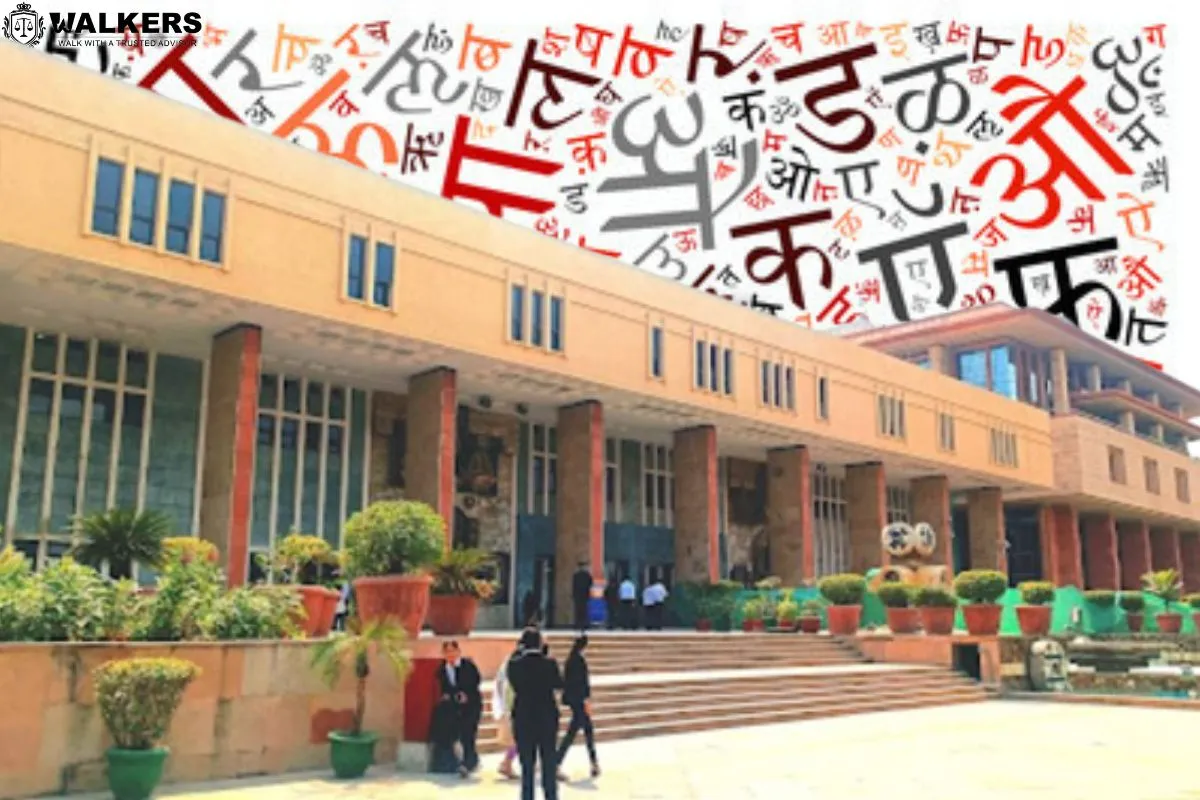


Delhi High Court Orders Mediation Centres to Prepare Settlement Agreements in Hindi, Acknowledging Language Barrier in Majority of Cases
In a recent ruling (Sh Chhater Pal & Ors v State & Anr), the Delhi High Court has directed mediation centres in the capital city to prioritize drafting settlement agreements in Hindi, alongside English. Justice Swarana Kanta Sharma emphasized that the decision was made due to the fact that many litigants do not understand English and Hindi is their primary language.
Highlighting the potential confusion arising from translations and the importance of clarity, the Court noted that currently, mediated settlement agreements in Delhi are exclusively drafted in English. The order aims to address this issue and facilitate a better understanding of the terms and conditions by the parties involved.
To further guide mediators in drafting settlement agreements, particularly in matrimonial disputes, the Court issued a series of comprehensive guidelines. These guidelines emphasize the inclusion of specific names of all parties involved in criminal proceedings, avoiding ambiguous terms, and outlining the timeline for fulfilling the agreed-upon terms. The agreements should also incorporate a default clause and provide clear explanations of the consequences for non-compliance.
Furthermore, the Court emphasized the importance of specifying the mode of payment and identifying which follow-up documents need to be signed by each party. In cases where the agreement involves cooperation for the quashing of FIRs (First Information Reports), especially in matrimonial disputes under Section 498A IPC, the agreement should explicitly mention the names of all parties named in the FIR, clarifying that the claims have been settled entirely.
The Delhi High Court hopes that by ensuring the preparation of settlement agreements in Hindi, it will not only bring finality to agreements in mediation centers but also facilitate their successful implementation in courts of law.
Delhi High Court Emphasizes Clarity in Mediation Agreements, Highlights Inclusion of Specific Details
In addition, Justice Swarana Kanta Sharma emphasized that the settlement agreements must explicitly state that the FIR (First Information Report) will be completely quashed against all individuals involved, whether arrested, chargesheeted, or not. The agreement should specify the names of those against whom the FIR will be quashed, and clarify that payment, whether by the husband or any other representative, will be made accordingly.
Furthermore, the Court highlighted the importance of addressing criminal complaints or cross-cases filed by the parties involved. These cases must be specifically mentioned in the agreement, and it should be clearly stated that all parties have read and understood the settlement agreement in their native language.
In instances where only a subset of parties is present during mediation proceedings and signs the agreement, it should be explicitly mentioned that the agreement is being signed on behalf of absent relatives or parties.
Justice Sharma emphasized the need for definite language in the agreement to ensure a clear understanding of the true intentions and goals of the parties involved.
The Court directed the judgment to be forwarded to the in-charge of Delhi High Court Mediation and Conciliation Centre (SAMADHAN), as well as the respective in-charges of all mediation centers in the District Courts of Delhi, for compliance.
Additionally, a copy of the judgment will be forwarded to the Director (Academics) of Delhi Judicial Academy.
Advocate PK Anand represented the petitioners, while Additional Public Prosecutor Satish Kumar appeared for the State. Advocates Shanta Pandey, Hiren Dasan, and Preeti Chauhan appeared for the other respondents.
Click Here to: Download/View Related File
TAGS: Delhi High Court mediation centres settlement agreements Hindi English language barrier majority of cases mother tongue comprehension clarity guidelines matrimonial disputes criminal proceedings names of parties terms and conditions timeline default clause mode of payment quashing of FIRs specific mention vernacular language intentions of parties compliance.